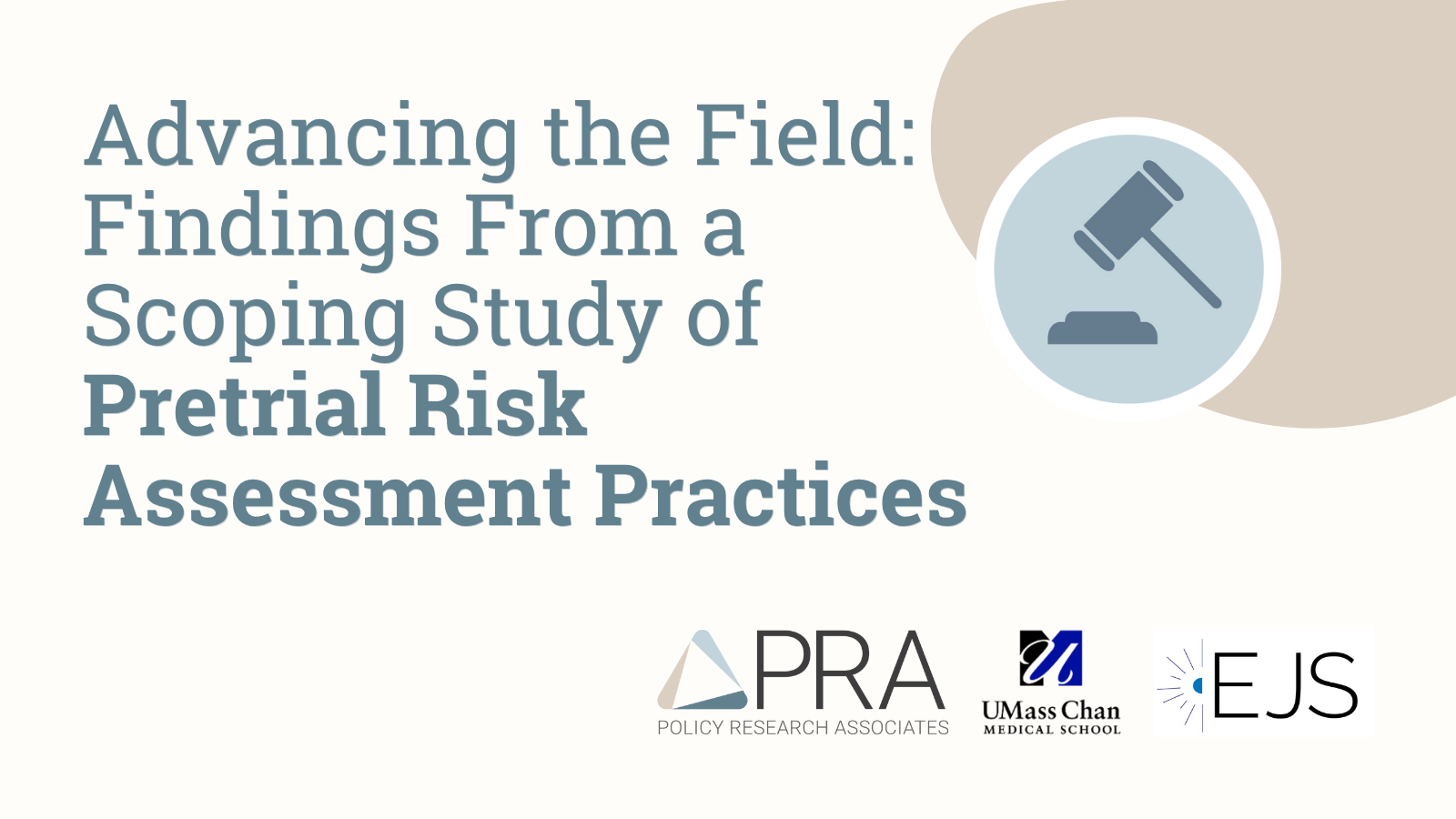Policy Research has completed a 3-year study examining what is needed to lower pretrial detention rates, especially for people with behavioral health conditions. The study, funded by the John D. and Catherine T. MacArthur Foundation, was a collaboration between Policy Research, Inc., George Mason University, and UMass Chan Medical School. University of Virginia’s John Monahan, PhD, served as Principal Investigator. The findings provide valuable insights that communities can use to enhance public safety and connect people in the pretrial period to essential services.
Our Findings
1. Pretrial Risk Assessments Accurately Predict Pretrial Misconduct
The evidence is clear: most pretrial risk assessments accurately predict pretrial misconduct, such as failure to appear, any new arrests, and new violent arrests. No single instrument outperforms others significantly, and importantly, they perform equally well across race, gender, and behavioral health status. Jurisdictions can confidently use these instruments while still prioritizing local validation and continuous monitoring.
2. Local Context Can Impact the Accuracy of Pretrial Risk Assessments
Local policies, practices, geography, and population characteristics can influence the performance of pretrial risk assessments. In one jurisdiction, a commonly used instrument did not accurately predict failure to appear for Native American defendants in rural South Dakota—a population and setting not previously included in validation studies. Local policies, practices, and population characteristics can diminish the effectiveness of otherwise well-validated pretrial risk assessment instruments, not by altering their inherent predictive validity, but by influencing how accurately that validity translates within specific contexts.
3. Behavioral Health Needs Should Result in Supportive, Not Restrictive Pretrial Decisions
Mental and substance use disorders do not distort pretrial risk assessment instrument results. Pretrial risk assessment instruments predicted pretrial misconduct equally well regardless of a person’s behavioral health status. Judges and court staff should avoid overriding instrument results based on behavioral health status and should instead use that information to connect people to treatment and support services.
4. Defendants’ Needs Are Clear—and Universal
Defendants need stable housing, financial resources, and mental health support to succeed during pretrial supervision. Trustworthy relationships, consistent communication, and access to transportation were also key. These findings suggest that pretrial services emphasizing support and connection can improve pretrial success.
5. Youth Practices Are Changing for the Better
Research in Colorado led to the development and statewide implementation of a new youth pretrial risk tool (Colorado Youth Detention Screening Instrument [CY-DSI]) to identify youth at risk of serious harm to others. The new tool and forthcoming policy changes will help to reduce the number of youth being held in pretrial detention.
National analyses of the Massachusetts Youth Screening Instrument-2 (MAYSI-2) also found that mental health symptoms among youth in juvenile justice systems have declined, especially in incarcerated settings, demonstrating that reform efforts are making a difference.
What’s Next
Our efforts to find what works to inform decisions and improve outcomes in the pretrial period do not end with the conclusion of this study. Policy Research continues to collaborate with jurisdictions like Pennington County, South Dakota, to implement evaluated pretrial risk assessments and implement them in the context of pretrial services. Researchers at George Mason University are expanding their findings into an Intentional Pretrial Supervision model now being tested across 11 Indiana counties. Researchers at UMass Chan continue their national analyses on youth mental health in juvenile justice systems, now exploring the impact of COVID shutdowns.
Together, we continue to drive real-world change and make pretrial systems more effective through rigorous and timely research.
Why It Matters
This study explored pretrial practices at the national, state, and local levels. Findings demonstrate that sound research can advance evidence-based practices in the criminal legal system while ensuring safety and fairness for all.
With decades of experience in the intersection of behavioral health and the criminal legal system, Policy Research supports jurisdictions nationwide with implementing evidence-based pretrial practices.


